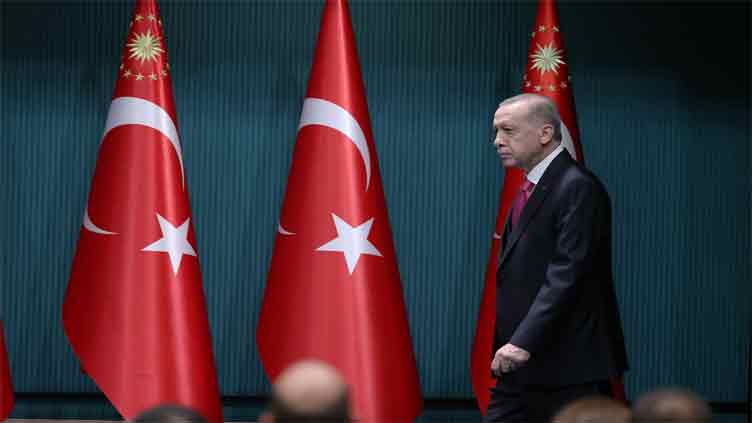Turkish tariffs on Chinese vehicle imports hiked by 40pc

Business
Ankara sets minimum duty at $7,000
- Biden administration is going to quadruple US tariffs on Chinese EVs with effect from August 3
- China has denied extending any subsidies that are barred by WTO
ISTANBUL/WASHINGTON/BEIJING (Reuters/Web Desk) – Turkiye has decided to impose a 40 per cent additional tariff on imports of vehicles from China, a presidential decision published in the country's Official Gazette showed on Saturday.
The additional tariff is set at a minimum of $7,000 per vehicle, which will be effective from July 7.
The decision said if the 40pc tariff calculated from the price of an imported vehicle is under $7,000 then the minimum tariff of $7,000 will be charged.
In 2023, Turkey imposed additional tariffs on electric vehicle imports from China and brought some regulations regarding EV maintenance and services.
The move comes amid the US-China trade war and the European Union (EU) joining the United States in expressing concerns over the cheaper Chinese EVs and other vehicles, which, they say, are damaging the local carmakers.
US TARIFFS
Last week, US Energy Secretary Jennifer Granholm said quadrupling import duties on Chinese electric vehicles to over 100pc in August as planned is crucial to the health of the US auto sector.
"We need to have this industry here. And if we didn't do that, we would just be ceding the entire territory to China like we saw happen with solar panels," Granholm said in an interview with Reuters reporters and editors.
China's "plan is very aggressive on industrial policy and we had done nothing and now we are doing something about it."
Washington is investing hundreds of billions of dollars in clean energy tax subsidies to develop US EV, solar and other new industries, and has said China's state-driven overproduction capacity in these sectors threatens the viability of US companies.
The Biden administration aimed the US tariffs, which are set to take effect starting Aug 1, at protecting American jobs from a feared flood of cheap Chinese imports.
"We want to have a manufacturing backbone. We have to be tough about it," Granholm said.
She said US automakers "are doing everything they can to continue to reduce prices," rejecting the suggestion that keeping lower-priced Chinese EVs out of the US would deter American automakers from cutting prices.
Granholm also said she expected about 1,000 public EV charging stations to be operational by the end of the year from a $7.5 billion federal government programme that so far has resulted in a small number of stations up and running.
THERE AREN’T ANY CHINESE EV SUBSIDIES
On the other hand, a spokesperson for Chinese foreign ministry said China never makes use of subsidies for electric vehicles that have been prohibited by the World Trade Organization (WTO).
"China's new energy products, including electric vehicles, are widely popular in the international market," Mao Ning, the spokesperson, told a regular press briefing on Thursday.
"They are the result of the combined effects of comparative advantages and market laws."
Subsidies cannot make up for industrial competitiveness, Mao said, adding, "There are no prohibited subsidies stipulated by the WTO."
New energy products were the result of enterprises' efforts, not government subsidies, Mao added. "Last year, China exported only 13,000 electric vehicles to the United States. How can they flood into the US market?"


